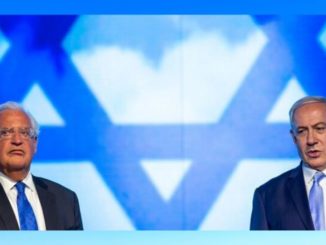
“If this trend continues,” Baroud concluded, “the Middle East is likely to emerge in coming years as a whole new geopolitical space compared to the one which preceded the war.
Speaking to the Turkish Aydınlık Newspaper on July 22, Palestinian journalist and editor of The Palestine Chronicle, Ramzy Baroud, discussed the recent Israeli invasion of Jenin, the new balance of power between the United States and Israel, and possible future scenarios in the Middle East.
“The Israeli invasion of Jenin was a failure,” Baroud said, “because it was intended to achieve specific goals, lead amongst them the destruction of the Palestinian Resistance, its infrastructure, the killing or arrest of its leadership and many of its fighters. This didn’t actualize.”
“In fact, the operation was largely conducted for political reasons, in order for rightwing Israeli Prime Minister Benjamin Netanyahu to keep his fractious government coalition happy,” he continued.
Stronger Resistance
The Resistance in Jenin, according to Baroud, “is emerging stronger and more emboldened”.
“If we compare this to the invasion and infamous massacre of Jenin in April 2002, we will find that while the first one has helped give the Israeli military occupation the upper hand in the northern West Bank, the latter simply created massive destruction and caused deaths and injuries with no specific political outcomes,” Baroud explained.
When asked about Israel’s rift with the United States and Netanyahu’s insistence on judicial reforms, Baroud said that,
“Netanyahu is insistent on the judicial reforms for two reasons: one, to protect himself against legal accountability as a result of the three corruption cases which have dogged him for years; and, two, to empower his far-right allies against similar accountability, and to keep them in power as long as possible.”
This, according to Baroud, is “causing problems between Israel and the US.”
“Washington’s expectations on Israel have been quite humble, simply to maintain the facade of democracy, and commit to playing the US political game in the Middle East in ways that satisfy both the American and Israeli agendas,” he said, adding:
“Israel is violating this tacit agreement: it is abandoning whatever claim to liberal democracy it maintained, while refusing to engage in US-led regional projects, including the peace process and all the rest.”
China’s Influence
Baroud also talked about the recent developments in the West Asia region, in particular about China’s growing relations in the region and the change in the axis of the Arab countries.
“Recent US media reports suggesting a rift between Saudi and UAE over a number of issues confirms the many claims that West Asia is in the process of a major influx,” he said, explaining that the Saudi-UAE alliance, which “has been one of the strongest in recent years”, is “now being challenged by changing geopolitical circumstances: Saudi closeness to Russia, Riyad’s insistence on neutrality and the behavior of OPEC+, to name few.”
China’s influence in the Middle East, according to Baroud, “has been growing in .. for years before the Russia-Ukraine war.”
“Slowly, but surely China is becoming indispensable to the economies of the Middle East. This has ignited the ire of the US, which is unable to match the Chinese model, and is also unable to afford another military adventure in the region.”
“If this trend continues,” Baroud concluded, “the Middle East is likely to emerge in coming years as a whole new geopolitical space compared to the one which preceded the war, and certainly a whole different place to the one which existed during and immediately following the US invasion of Iraq in 2003.”
(The Palestine Chronicle)








